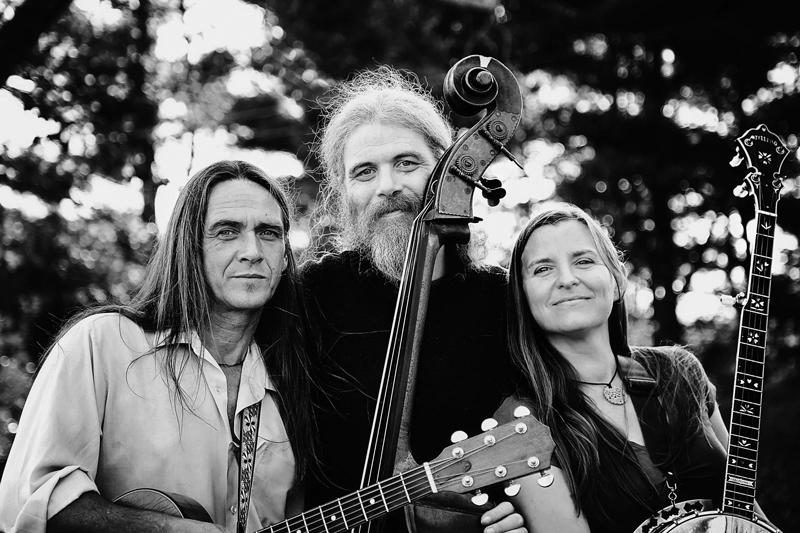The folk circuit has in recent years been home to a number of married couples who make music and tour together. Among them was Kentucky couple Zoe Speaks, who a decade ago were playing 200 shows a year. With the partners spending twenty-four hours a day together, the survival rate for these marriages has not been good, and Mitch Barrett and Carla Gover divorced and stopped performing jointly in 2007. Recently, however, they joined a smaller club, that of former marital partners who’ve reunited to continue their musical partnerships. The group includes such luminaries as the Swell Season, and early indications are that Zoe Speaks, which has recently returned to the road as a trio with Owen Reynolds, has come back stronger than ever.
How do they do it? To an extent they’re riding a modest trend. Ten years ago their brand of traditional Appalachian folk was getting rarer, but nowadays their music, mixing traditional songs with originals that make sparing but telling use of more modern styles, finds counterparts in the work of younger bands like Michigan’s Red Tail Ring. That might have helped them get signed to the roster of Kosson Talent, one of the national booking agencies that now funnel performers toward clubs like the Ark. Zoe Speaks, named for the first words of Barrett and Gover’s daughter (who’s now old enough to join them on stage at times), comes to the Ark November 7.
Or it could just be that, as Gover says in the best love song you’ll hear this month, when it comes to love, though you know what’s in store, you keep coming back for more. The three Zoe Speaks albums of the 2000s were unsung masterpieces, and they’re at work on a fourth. They infuse their old-time and traditional bluegrass songs with a sense of personal meaning, and progressive themes animate originals like “Drop in the Bucket” (“Brothers and sisters, if we’re gonna make a difference, we’re gonna have to stand our ground. Be a drop in the bucket, and a bucket in the pond. And the pond fills the river, and the river rushes on.”). The old ballad “Shady Grove” is given new lyrics and a slap bass and becomes a scary story of an interracial relationship in the South under threat by the Ku Klux Klan.
Add in sweet harmonies and expert playing on mandolin, clawhammer banjo, hammered dulcimer, guitar, and even the floor itself in a few clog-dance numbers from Gover, and you have a superior evening of old-time music.


